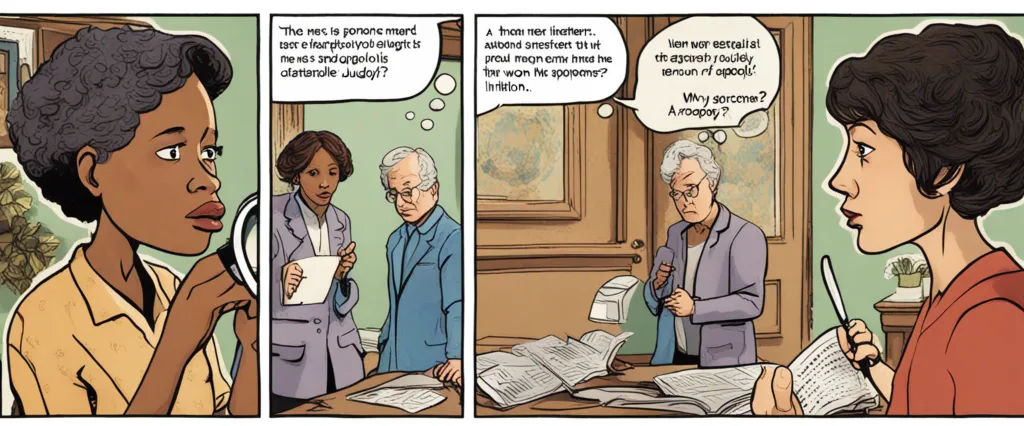——Why Won’t You Apologize by Dr. Harriet Lerner & How to talk to anyone by Leil Lowndes

In the realm of interpersonal communication, the ability to navigate difficult conversations and resolve conflicts is an essential skill. As humans, we all encounter situations where we must confront misunderstandings, address hurt feelings, or seek reconciliation. Yet, finding the right words and approach to foster understanding and achieve a sincere apology can be challenging. Dr. Harriet Lerner’s Why Won’t You Apologize and Leil Lowndes’ “How to Talk to Anyone” are two insightful books that delve into this complex subject matter, providing readers with valuable guidance on effective communication strategies.
In “Why Won’t You Apologize,” Dr. Harriet Lerner, renowned psychologist and author, dives deep into the psychology behind apologies and the reasons why some individuals struggle to sincerely offer or accept one. Drawing upon her extensive clinical experience, Lerner explores the obstacles that prevent people from apologizing empathetically, dissecting the complexities of forgiveness and understanding. With a compassionate and engaging writing style, the author walks readers through real-life scenarios, highlighting the significance of apologies and the transformative impact they can have on relationships. Through her book, Lerner not only aims to empower individuals to navigate apologies successfully but also to create a culture of accountability and healing within our society.
On the other hand, Leil Lowndes’ “How to Talk to Anyone” offers a comprehensive guide to effective communication techniques in various interpersonal settings. Lowndes, an acclaimed speaker and communications expert, provides readers with practical strategies for initiating conversations, improving listening skills, and fostering strong connections with others. Known for her ability to break down complex concepts into simple, actionable steps, Lowndes offers readers valuable insights into building rapport, addressing disagreements, and diffusing tense situations. In “How to Talk to Anyone,” she emphasizes the importance of effective communication as a pathway to successful relationships, both personally and professionally.
While both books tackle the complexity of interpersonal communication, the approaches offered by Dr. Harriet Lerner in “Why Won’t You Apologize” and Leil Lowndes in “How to Talk to Anyone” present readers with distinct perspectives. Lerner’s book concentrates specifically on the power of apologies and the emotional impact they hold, while Lowndes’ work provides a broader scope of communication skills applicable to a myriad of situations. By juxtaposing their insights, this comparative study aims to analyze the similarities, differences, and complementary elements between these two remarkable works, ultimately shedding light on the art of effective communication and offering readers a valuable toolkit for navigating difficult conversations.
As we embark on this comparative journey, we will delve into the core principles explored by each author, examine their research, and evaluate the practicality and efficacy of their recommendations. By doing so, we hope to equip readers with a comprehensive understanding of the intricacies of communication, paving the way for personal growth, improved relationships, and a deeper connection in our increasingly interconnected world.
Brief Summary of Two Books
Why Won’t You Apologize by Dr. Harriet Lerner
“Why Won’t You Apologize” by Dr. Harriet Lerner is a thought-provoking book that explores the complex dynamics of apology and forgiveness in human relationships. Dr. Lerner, a renowned psychologist, delves into the intricacies of why people often struggle to offer sincere apologies and why receiving an apology can sometimes be challenging.
Throughout the book, Dr. Lerner offers insights into the various reasons individuals avoid apologizing, even when they are in the wrong. She explores the underlying emotions and fears that often prevent people from taking responsibility for their actions. She also provides guidance and strategies for those who want to offer a genuine apology and develop healthier communication patterns.
The author emphasizes the importance of apologies in relationships and the power they hold to heal emotional wounds, rebuild trust, and foster stronger connections. She explores different scenarios, such as apologizing to friends, family, and romantic partners, and highlights the specific challenges and approaches needed for each situation.
Dr. Lerner also addresses the role of forgiveness in the healing process. She emphasizes that forgiveness should not be confused with condoning or forgetting, but rather as a way to move forward and reclaim personal power. The author provides insights into the complexities of forgiveness and offers guidance on how to navigate the process when the other person refuses to apologize.
By drawing on real-life examples, psychological research, and her vast clinical experience, Dr. Lerner presents a comprehensive exploration of apologies and forgiveness. “Why Won’t You Apologize” serves as a valuable resource for anyone seeking to understand the intricate dynamics of making amends, fostering healthy relationships, and promoting personal growth.
How to talk to anyone by Leil Lowndes
“How to Talk to Anyone” by Leil Lowndes is a self-help book that provides valuable insights and practical techniques for improving communication skills in various social and professional settings. The book is divided into nine sections, each focusing on different aspects of communication.
The first section emphasizes the importance of making a good first impression and offers tips on how to project confidence and approachability. Lowndes also provides advice on effective body language and conversations starters to help readers engage with others more easily.
The second section of the book delves into specific conversation techniques, such as mastering small talk, finding common ground, and becoming a good listener. Lowndes gives practical suggestions on how to ask open-ended questions, steer conversations, and show genuine interest in others.
In the third section, the author focuses on building rapport and creating connections. She shares strategies for developing charisma, increasing likability, and effectively using humor.
The following sections of the book tackle more specific scenarios, such as networking events, job interviews, and dating. Lowndes offers guidance on how to make a strong impression in these situations and provides advice on overcoming anxiety and building confidence.
The later sections of the book address more advanced communication techniques, such as recognizing and interpreting nonverbal cues, decoding body language, and effectively handling difficult conversations or confrontations.
Throughout the book, Lowndes uses real-life examples, engaging anecdotes, and practical exercises to illustrate her points and ensure that readers can apply the techniques in their everyday lives.
In summary, “How to Talk to Anyone” is a comprehensive guide for improving communication skills, offering practical tips, techniques, and strategies for building confidence, connecting with others, and creating meaningful conversations. Whether in personal or professional environments, readers will find tools to become more confident and effective communicators.
Comparison between Two Books

Similarities in Relationship
The books “Why Won’t You Apologize” by Dr. Harriet Lerner and “How to Talk to Anyone” by Leil Lowndes discuss relationship dynamics and provide insights on effective communication skills. While the topics of apology and communication may seem different at first, there are commonalities in terms of their impact on relationships. Here are the similarities in relationship aspects discussed in both books:
1. Importance of understanding emotions: Both books emphasize the significance of understanding one’s own emotions and the emotions of others in building healthier relationships. “Why Won’t You Apologize” explores the role of empathy in understanding the emotional impact of our actions on others, while “How to Talk to Anyone” emphasizes the need to recognize and adapt to the emotions of the person we are communicating with.
2. Communication as a key factor: Both books agree that effective communication is crucial for successful relationships. “Why Won’t You Apologize” delves into the power of a genuine apology and discusses the skills required to communicate apologies effectively. “How to Talk to Anyone” focuses on general communication skills, providing techniques to engage and connect with others in various situations.
3. Repairing and rebuilding trust: Dr. Harriet Lerner’s book explains how apologizing sincerely and taking responsibility for our actions can help repair damaged relationships and rebuild trust. Similarly, “How to Talk to Anyone” highlights the importance of building trust through clear and authentic communication, which can enhance relationships and establish stronger connections.
4. Navigating conflict: Both books acknowledge that conflict is inevitable in relationships. “Why Won’t You Apologize” addresses the role of apology in conflict resolution and understanding the different strategies for resolving conflicts. “How to Talk to Anyone” provides insights on how to handle conflict situations gracefully through effective verbal and non-verbal communication techniques.
Overall, the similarities between the two books lie in their focus on relationship dynamics, effective communication skills, understanding emotions, rebuilding trust, and navigating conflict. By addressing these aspects, both authors aim to help readers improve their relationships and create healthier connections with others.
Divergences in Relationship
Both “Why Won’t You Apologize” by Dr. Harriet Lerner and “How to Talk to Anyone” by Leil Lowndes offer valuable insights into interpersonal communication and relationships. However, their primary focus and approach diverge when it comes to the topic of relationships.
Dr. Harriet Lerner’s book, “Why Won’t You Apologize”, primarily centers around repairing and strengthening relationships through the act of apologizing. Lerner explores the importance of apologies in resolving conflicts and fostering understanding between individuals. She delves into the reasons why people resist apologizing, the impact it has on relationships, and provides practical advice on how to offer sincere apologies. Lerner’s book emphasizes the significance of taking responsibility for one’s actions and the transformative power of apologies in repairing damaged relationships.
On the other hand, Leil Lowndes’ book, “How to Talk to Anyone”, focuses on improving communication skills to build rapport and establish connections with others. While it touches on various aspects of relationships, such as making a positive first impression and engaging in meaningful conversations, it primarily centers on how to communicate effectively and confidently in different social situations. Lowndes provides readers with practical techniques and strategies to boost their communication skills, including body language, active listening, and conversation starters. Her book emphasizes the importance of effective communication as the key to successful relationships.
In terms of divergence, where these books differ significantly is in their approach to relationship-building. Lerner’s book concentrates on repairing and strengthening existing relationships through apologies, while Lowndes’ book primarily focuses on establishing new connections and improving communication skills.
Lerner’s book tackles conflict resolution through apologies by addressing the emotional dynamics in relationships, acknowledging the pain caused, and promoting empathy and understanding. Her emphasis is on reconciliation and personal growth within established relationships.
On the other hand, Lowndes’ book places more emphasis on initial connections and building rapport through effective communication techniques. While she acknowledges the importance of maintaining relationships, her book seems more geared towards creating new connections rather than addressing existing ones.
In conclusion, while both “Why Won’t You Apologize” and “How to Talk to Anyone” offer valuable insights in the realm of relationships, they diverge in their primary focus. Lerner’s book concentrates on the significance of apologies in repairing relationships, while Lowndes’ book primarily emphasizes effective communication skills for building new connections.

Conclusion
Both “Why Won’t You Apologize” by Dr. Harriet Lerner and “How to Talk to Anyone” by Leil Lowndes are valuable books in their own ways. The choice between the two would depend on your personal preferences and the specific areas you are looking to improve in your life.
If you are interested in enhancing your communication skills, building better relationships, and understanding the dynamics of apologies, then “Why Won’t You Apologize” is a great choice. Dr. Harriet Lerner dives deep into the importance of apologies, why they can be difficult for some people, and provides guidance on how to offer meaningful apologies or receive them gracefully. This book can be particularly useful for those seeking personal growth, improving relationships, and understanding the power of apologies.
On the other hand, if you are interested in improving your overall social skills, developing confident and effective communication, and mastering conversation techniques, “How to Talk to Anyone” by Leil Lowndes may be a better fit. This book offers practical tips and strategies to help you navigate social situations, make strong connections, and become a better conversationalist. It covers a wide range of topics, from body language to listening skills, making it suitable for anyone looking to enhance their social interactions.
Ultimately, both books serve different purposes, so it’s essential to consider what you are personally looking to achieve with your reading.



